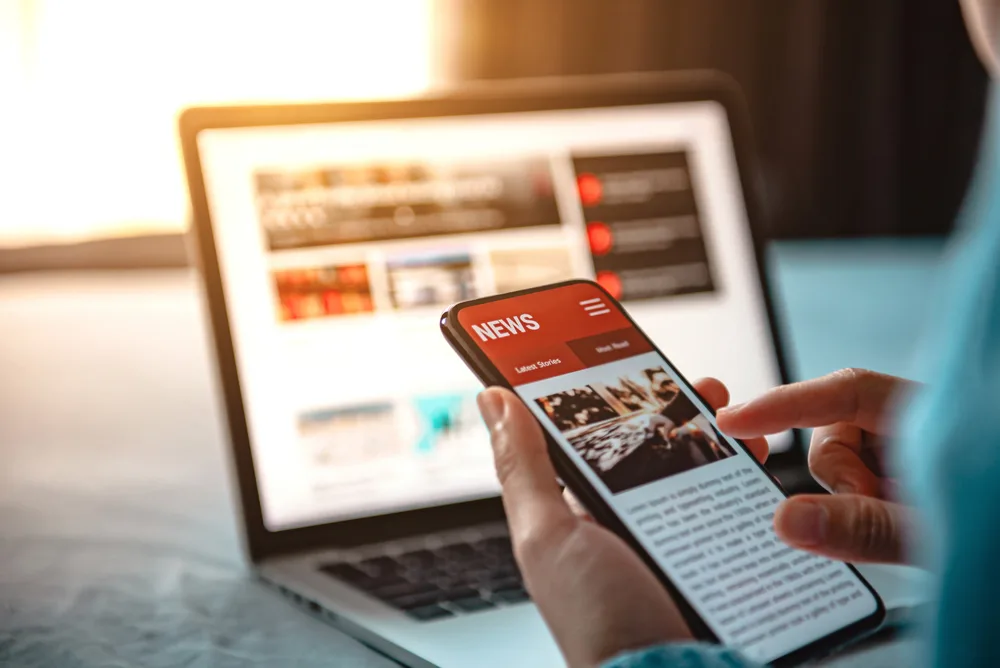If you’ve been following college sports, you’ll remember that the NCAA Division I Board of Directors approved the “Name, Image, and Likeness” (NIL) policy in June of 2021. This allows student-athletes to make money for their name, image, and likeness. From signing endorsement deals, to selling products, to running clinics — they are now able to generate funds by creating their own brand, which was previously illegal.
Thomas Coke is a proud father of a Division I high jump college conference champion and a regional qualifier for the NCAA. Upon passing this new policy, his son was in a position to start using his own NIL. So Thomas set out to learn all he could about how NIL worked and how it could be used to help student-athletes generate revenue.
In this episode of Venture unscripted., Josh Barker, CEO of City Innovations, sat down with Thomas Coke, CEO of Varsity Gems to learn how his company combines NIL policy with NFTs, how to handle a two-sided market, and 7 pieces of advice that every entrepreneur should follow when creating a startup.
Click here to listen to the podcast or keep scrolling to read the podcast recap blog.
How it All Started: Combining NIL with NFTs
After researching NIL policy and making connections with Tom McFadyen, CEO of McFadyen Solutions, Inc., Thomas Coke was invited to be on a project with the company and Dartmouth College’s Tuck School of Business where he advised MBA students who were researching NIL and NFTs (non-fungible tokens).
“I have some background in FinTech and knew a little bit about blockchain, but didn’t know much about NFTs. But after a semester of advising these students, one of the students and I decided [that] this is something we should start into a company,” stated Thomas.
Thus, their company, Varsity Gems, was born with a focus on offering just in time (as known as lazy) mint NFTs to baseball and hockey student-athletes. The athletes could then sell their NFTs and keep 75% of the proceeds of any sale.
“Really, it is a digital trading card… It’s a great [thing] for those who want to support the student-athlete. If [the student has] an endorsement with Monster Energy Drink, you can buy a lot of Monster Energy Drink and that student-athlete will ‘theoretically’ get paid. But how much Monster do you really want to drink?” Thomas explained.
Overall, Varsity Gems aims to put money back into the pocket of student-athletes by creating NFTs that act as a unique version of a digital trading card.
Validating The Company
But how was their company validated in the market?
“We had two advantages that I’ve never had as an entrepreneur before, ” explained Thomas. “The first advantage was from the business side researching and testing it.”
Having the opportunity to work with Dartmouth College MBA students provided Varsity Gems with the academic support to validate their business within the market.
“That was a big help because that’s a tool that most people would love to have that they don’t. [The] original study was sponsored by McFadyen [Solutions], the Platform Strategy Institute, and their professor, Dr. Peter Evans, who’s an expert in NFTs,” he said.
The second advantage was having McFadyen Solutions come on as advisors and equity partners of Varsity Gems. This offered them the technical support and knowledge needed to continue to move forward successfully.
Handling a Two-Sided Marketplace
However, the company has a two-sided marketplace. They need students who want to have NFTs but also need people who want to purchase and/or trade those NFTs.
To solve the issue of getting people to buy their NFTs, Varsity Gems started marketing to affinity groups made up of alumni fans, friends/family, social media networks, and young fans who were already interested in buying digital trading cards.
“The other thing that we’ve really done a good job of is picking select sports. We’ve really researched that. We found that women’s sports — softball and women’s hockey — have been very receptive so far. From a following standpoint, their fans are very passionate…,” stated Thoams.
“One of the interesting things with NIL is that a lot of fans are saying, ‘I’d love to participate and help the student-athletes. I just don’t know how.’ We want to make it so it’s available,” explained Thomas.
The other side of it is convincing student-athletes how easy it is for them to create and sell their NFTs. To help, Varsity Gems creates content for the student-athletes to use to market themselves and put on their social channels.
7 Pieces of Advice Every Entrepreneur Should Follow
Throughout the course of creating his startup, Thomas discovered 7 pieces of advice that every intra- and entrepreneur should follow.
- Don’t be afraid to give up equity when it’s worth it.
“We had an investor pull out, so we had to learn grit, boots-strappiness, and be open to saying, ‘Okay, you’ve done something for us. So we’re going to give you equity.’ And [for] the equity — the people coming in are worth it,” he explained.
- Be open to changing the scope of your business.
“There’s a danger in getting too excited and trying to build too big of a market that you can’t sustain. We started out really wide and then we narrowed… That’s the difficulty of being an entrepreneur — you wanna take a huge slice and you want to have this big percentage of the market share,” Thomas warned.
- Find people to work with that already know your market space and are passionate about what you do.
“Every other company I’ve built in the past has been a cool concept. This time we actually are surrounded ourselves [with passionate people]. Like my interns — we sit and talk sports when we’re not working. And that’s really cool that we can have those conversations and they really care about this. They’re living this NHL story themselves.”
- Listen to everyone.
“Listen, not just to people that are trying to help you, but people who don’t seem to be helping you — because sometimes they’re telling you things that seem less than helpful, but they’re true. Also, listen to the market. Listen to what people are talking about.”
- Take advantage of opportunities.
Thomas stated, “Take advantage of opportunities. Sit back and really think about what something means and what is going to help you go places? And who are you with?”
- Invest in your mental health.
“I’m in therapy right now. I went through a really bad time. Spend time on your mental health… not being one of these 24/7 constantly churning entrepreneur people. There’s no pride in that. Part of being a person is having the proper mental health and having friends and family and people around you know that have proper mental health and care about you,” he stated.
- Spend time on things you’re passionate about.
Thomas explained that it’s important to learn the “why” behind what you’re doing. Why do you get up? What motivates you and what inspires you?
“I look at a lot of tech entrepreneurs who built the next piece of MarTech… And they didn’t build that cuz they love CRM. They built it cuz they saw a problem. They got passionate about solving it and they knew that it was a means to an end for where they wanted to go in life,” he explained.
What’s Next
So, what’s next for Thomas as he continues his success at Varsity Gems?
“For me, it’s running this for as long as I can, and then diving into my life goal to keep working with college entrepreneurs and helping them not just be entrepreneurs, but also use those skills to be better employees, whatever job they get in life,” he stated.
Check out the full podcast to continue learning more about Thomas Coke and his venture, Varsity Gems.




